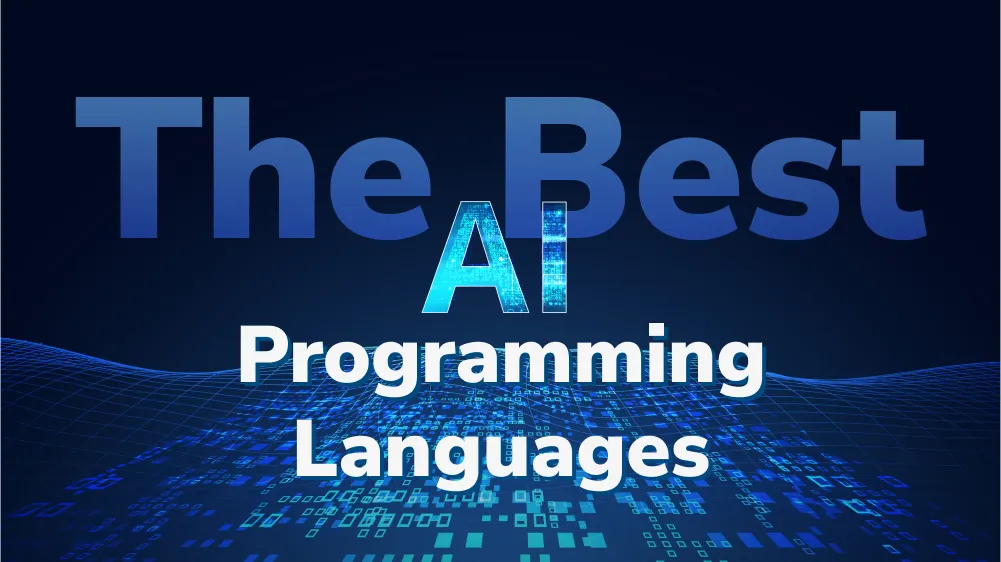How AI in Fintech Is Making Your Money Work Smarter for You

Content Map
More chaptersWelcome to the future of finance, where your money is not just sitting idle but working smarter for you, thanks to the integration of Artificial Intelligence (AI) in fintech. As we step into an era where technology is revolutionizing every aspect of our daily lives, the financial sector is no exception.
In 2023, the financial services industry invested an estimated $35 billion in AI, with banking leading the charge, accounting for approximately $21 billion. The global AI in fintech market size reached USD 9.45 billion in 2021 and is projected to grow at a compound annual growth rate (CAGR) of 16.5% from 2022 to 2030.
AI is widely used in financial companies to detect and prevent fraud, manage and evaluate data from many sources to deliver essential insights and provide personalized financial advice to help users reach their financial goals. Over 75% of fintech firms have adopted at least one use case in Machine Learning, deep learning, and high-performance computing.
Let’s explore how AI in fintech is making your money work smarter for you, transforming the way we interact with our finances, and shaping the future of the financial industry. Ready to ditch the financial stress and unlock the power of AI? Dive in and discover how AI in fintech is changing the game!
Key Takeaways:
- AI Automates and Personalizes Your Finances: From automated bill pay and budgeting to personalized investment advice, AI streamlines financial tasks and tailors strategies to your unique situation. Imagine an AI assistant that helps you save time and money while guiding you toward your financial goals.
- AI Enhances Security and Protects Your Money: AI algorithms are on constant guard, analyzing transactions and identifying suspicious activity in real time. This proactive approach significantly reduces the risk of fraud and safeguards your hard-earned money.
- AI Empowers You with Informed Decisions: Don’t be intimidated by the word “artificial.” AI in fintech provides valuable insights and recommendations based on data analysis. You remain in control, leveraging AI to make informed decisions related to finance and achieve long-term financial success.
The Rise of AI in Fintech

The financial technology (fintech) industry has witnessed a profound transformation in recent years, driven by the rapid advancements in AI and machine learning (ML) technologies. As fintech companies and financial institutions strive to enhance their services, streamline operations, and provide more personalized experiences for customers, the integration of AI has become a game-changer.
At the heart of this AI-driven revolution in fintech lies the ability to harness vast amounts of customer data and financial transactions to drive better decision-making, automate processes, and deliver tailored solutions. AI-powered fintech platforms leverage sophisticated natural language processing (NLP) algorithms to analyze customer data, identify patterns, and generate valuable insights that can inform a wide range of financial services.
Examples of popular AI-powered platforms in fintech:
- Mint: A leading budgeting and expense-tracking app that utilizes AI to categorize spending, track bills, and identify areas for saving.
- Betterment: A popular robo-advisor platform that leverages AI to create personalized investment portfolios and manage them automatically.
- Acorns: A micro-investing app that uses AI to make automatic, round-up investments from your everyday purchases, helping you save and invest effortlessly.
- PayPal Honey: A browser extension powered by AI that helps customers automatically find and apply coupon codes during online shopping, maximizing their savings.
How AI Makes Your Money Work Smarter

With AI becoming the backbone of the finance industry, it’s clear this technology isn’t just about fancy algorithms or futuristic concepts. Let’s delve deeper into how AI translates into tangible benefits for your everyday finances.
Save Time and Money
As the personal finance landscape evolves, the integration of artificial intelligence (AI) is transforming the way individuals manage their money. One of the primary ways AI is making our money work smarter is through the automation of time-consuming financial tasks. AI-powered budgeting and bill pay tools can effortlessly track expenses, categorize transactions, and even schedule payments, freeing up valuable time for users.
For example, AI-driven personal finance apps can automatically sync with a user’s bank accounts and credit cards, categorizing each transaction into relevant spending categories like rent, groceries, or entertainment. These apps can then generate detailed budgets and spending reports, allowing users to quickly identify areas of improvement where they can cut back or optimize their spending. By handling the mundane tasks of recording and organizing financial data, AI-powered tools enable users to focus on higher-level financial planning and decision-making.
Beyond just automating budgeting and bill pay, AI can also help users find better deals on financial products and services. By analyzing customer data, spending habits, and market trends, AI-powered platforms can identify opportunities to save money. For instance, an AI-driven investment management platform might suggest switching to a lower-fee mutual fund or reallocating assets to take advantage of current market conditions.
Similarly, AI-powered personal finance apps can scan the market for the most competitive interest rates on mortgages, credit cards, or savings accounts and then recommend the best options tailored to the user’s financial needs. This enhanced operational efficiency not only saves users time but also helps them optimize their credit-scoring, financial resources, ensuring their money works harder for them.
Personalized Finance
Beyond streamlining basic financial management, AI is also transforming the realm of personalized financial advice. By leveraging advanced data analysis capabilities, AI-powered financial planning tools can provide tailored recommendations for budgeting, saving, and investments. These platforms can consider an individual’s financial goals, risk tolerance, and market trends to offer tailored strategies to help users achieve their financial objectives.
For instance, an AI-driven investment management platform might analyze a user’s investment portfolio, risk profile, and long-term financial goals and then recommend a diversified mix of assets that aligns with their specific needs. This tailored approach to investment management can help users achieve their financial targets more effectively by optimizing their portfolios for their unique circumstances.
Similarly, AI-powered budgeting and savings tools can analyze a user’s spending patterns, income, and financial commitments to provide personalized recommendations on how to allocate their money. These tools might suggest ways to reduce unnecessary expenses, automate savings contributions, or identify opportunities to boost their emergency fund. By taking into account the user’s specific financial situation and priorities, AI-driven platforms can guide them towards achieving both their short-term and long-term financial goals.
The benefits of AI-financial planning tools extend beyond just personalized recommendations. These platforms can also provide users with a comprehensive view of their financial health, including real-time tracking of their net worth, debt levels, and credit scores. By consolidating all this information in one place, users can gain a deeper understanding of their financial standing and make more informed decisions about their money.
Furthermore, AI financial planning tools often incorporate features like goal-setting, progress tracking, and personalized educational content. These interactive elements help users stay engaged and motivated in their financial journey, empowering them to make better-informed choices and achieve their desired financial outcomes.
Enhanced Security
By analyzing enormous amounts of financial transaction data, AI-powered fraud detection systems can identify patterns and anomalies that may indicate fraudulent activities. These advanced algorithms are trained to recognize the subtle signatures of fraud, such as unusual spending patterns, suspicious login attempts, or unauthorized access to financial accounts. This allows these AI-driven systems to detect and flag potential fraud cases with far greater accuracy and speed than traditional rule-based fraud detection methods.
An AI-powered fraud detection system might notice a series of small, frequent transactions at various retail locations, which could be a sign of credit card theft or identity fraud. The system can then instantly alert the financial institution, enabling it to take immediate action to protect the user’s account and prevent further financial losses.
Beyond just fraud detection, AI is also playing a vital role in the broader realm of financial risk management. By analyzing vast troves of data, including market trends, economic indicators, and customer behavior, AI risk management tools can help financial institutions and individuals identify, assess, and mitigate various financial risks.
AI-wealth management platforms might detect early warning signs of a potential market downturn and automatically adjust a user’s investment portfolio to reduce their exposure to risk. Similarly, AI-credit risk assessment models can help lenders make more informed decisions about pricing and loan approvals, ultimately reducing the likelihood of defaults and delinquencies.
Is AI Right for Your Finance Management?

While the integration of AI into financial management has brought about numerous benefits, it’s essential to consider the potential drawbacks and limitations of these transformative technologies. One of the primary concerns surrounding AI-powered financial tools is the potential over-reliance on algorithms and the potential lack of human touch.
AI-driven financial platforms often rely heavily on complex algorithms and data models to make decisions and recommendations. While these systems can be highly accurate and efficient, they may not always account for the nuanced, emotional, and contextual factors that play a significant role in financial decision-making. For example, an AI-driven investment platform might recommend a portfolio that maximizes returns, but it may not fully consider the user’s risk tolerance, personal values, or life circumstances.
Additionally, the opaque nature of some AI systems can make it hard for users to understand the reasoning behind the recommendations or decisions. This can result in a lack of trust and a feeling of disempowerment, especially when it comes to something as personal and vital as one’s financial well-being.
To address these concerns, it’s crucial for users to carefully evaluate the AI-powered financial tools they choose and ensure that they align with their specific needs and preferences. When selecting these tools, users should consider factors such as:
- Transparency: Look for financial platforms that offer clear explanations of their AI algorithms, data sources, and decision-making processes. This can help users understand the rationale behind the recommendations and make more informed choices.
- Human Interaction: Seek out tools that incorporate a human element, such as the ability to consult with financial advisors or customer support representatives. This can help users feel more engaged and supported in their financial journey.
- Customization: Prioritize tools that offer a high degree of personalization, enabling users to tailor the platform to their unique financial goals, risk profiles, and personal preferences.
- Flexibility: Choose tools that provide users with the ability to override AI-driven recommendations or make manual adjustments to their financial plans, ensuring they maintain control over their money.
Consider Orient Software for Exceptional AI Expertise in Fintech
The future of finance is intelligent, and AI in fintech is poised to revolutionize how we manage our money. With AI automating tasks, personalizing financial advice, and enhancing security, you can finally ditch the spreadsheets and embrace a smarter approach to your finances.
However, navigating the ever-evolving landscape of AI-powered tools can be daunting. That’s where Orient Software steps in. As a reliable provider of AI development services, Orient Software boasts a team of passionate AI experts who can guide you through the selection process.
Don’t be intimidated by complexity. Our experts can help you identify the right AI tools that seamlessly integrate with your existing financial ecosystem and empower you to make informed decisions. Contact Orient Software today and unlock the full potential of AI to make your money work smarter for you. Let’s embark on your financial journey together, with the power of AI by your side.







